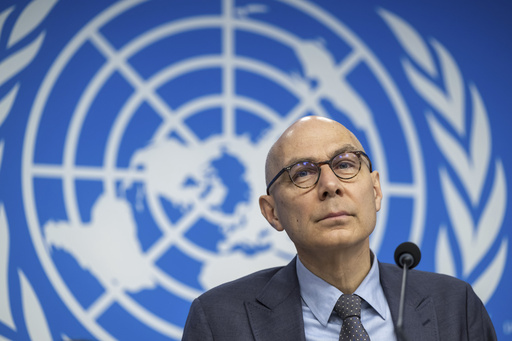
The United Nations human rights office recently reported that an estimated 1,400 individuals may have lost their lives in Bangladesh during a crackdown on protests led by students in the summer of last year. This crackdown spanned a period of three weeks, from July 15 to August 5, ending just as former Prime Minister Sheikh Hasina fled to India amidst the escalating unrest. The Geneva-based rights organization’s report asserts that security and intelligence agencies “systematically engaged” in human rights violations that could be categorized as crimes against humanity, warranting further investigation.
According to the findings, thousands sustained injuries during the protests, with the overwhelming majority of fatalities resulting from gunfire by security forces. Reports indicate that over 11,700 individuals were detained, with children comprising about 12 to 13% of the total estimated deaths, which translates to approximately 180 young lives lost. In shocking cases, security forces reportedly executed unarmed protesters at close range, highlighting the severity of the response to the demonstrations.
U.N. human rights chief Volker Türk emphasized incidents of extrajudicial killings, arbitrary arrests, and torture that appeared to be orchestrated with the complicity of political leaders and senior security officials, all aimed at quelling the protests. A U.N. fact-finding mission went to Bangladesh at the request of interim leader Muhammad Yunus, a Nobel Peace laureate, to investigate the violent suppression of the uprising. The investigative team revealed that the interim government had made 100 arrests related to assaults on religious and indigenous minorities, while many accountable individuals remained unpunished for acts of violence.
Concerns regarding the human rights landscape in Bangladesh persist, with the U.N. office noting that even after a change in government, the systemic issues remain largely unchanged. Rory Mungoven, who heads the Asia-Pacific division of the rights office, pointed out that numerous officials from the previous regime still hold positions and that this dynamic may hinder potential reforms and accountability measures.
The investigators put forth a series of recommendations for the government aimed at enhancing the justice system and implementing a witness protection program. They also called for a prohibition on the use of lethal force by security personnel against protesters, unless clearly faced with an imminent threat to life or serious injury. Following the publication of the report, Yunus reaffirmed his administration’s dedication to the rule of law and emphasized the urgency of reforming law enforcement and judicial practices.
He urged those within these systems to prioritize justice and accountability, particularly in addressing violations of human and civil rights by both peers and others. The protests began as a peaceful response by students dissatisfied with a government job quota system but rapidly escalated into a widespread uprising against Hasina and her Awami League party. The situation was exacerbated by a High Court ruling from June that reinstated the controversial quota system, which acted as a catalyst for the protests fueled by ongoing frustrations regarding economic disparities and a lack of rights in Bangladesh.

